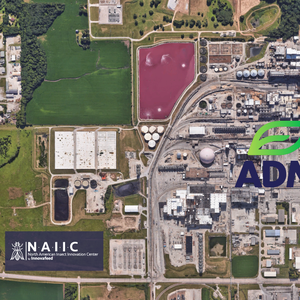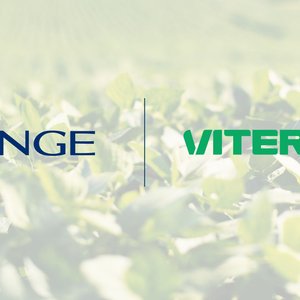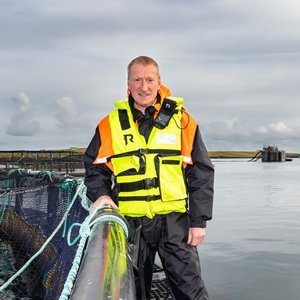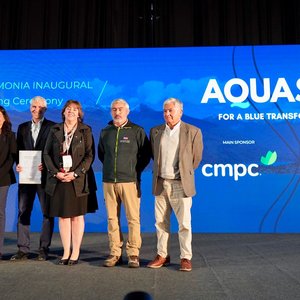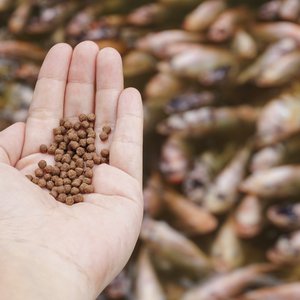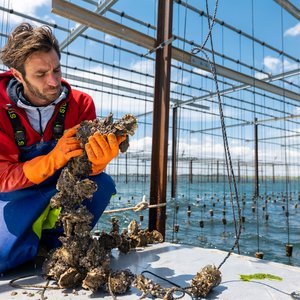In an effort to limit the amount of fishmeal and fish oil typically used to make aquatic feeds, scientists at Australia’s Commonwealth Scientific and Industrial Research Organization (CSIRO) have spent the past ten years developing a microbial feed additive for prawns.
Traditionally, farmed prawns have been fed pellets that contain some fishmeal and fish oil. These are included mainly to help the animals grow large quickly. The new additive contains marine microorganisms that have been bred in captivity, and which have been shown to play a crucial role in prawns’ growth process.
In a large-scale field test, the product was mixed with an existing commercial feed (taking the place of the usual fish meal and oil), then used in ponds at an Australian prawn farm. According to CSIRO, the additive-consuming black tiger prawns grew an average of 30 percent faster than their regular-food-eating counterparts, and were also healthier.
Meanwhile, scientists at the University of Maryland Center for Environmental Science have developed an alternative feed that consists entirely of plant-based ingredients. Instead of fishmeal, the experimental feed includes corn, wheat, and soy. Taking the place of fish oil is a combination of lipids (fatty acids) from algae, amino acid supplements, and soybean or canola oil.
The research team found that flesh of the fish raised on the plant-based diet has polychlorinated biphenyl (PCB) and mercury levels that are a hundred times lower than those found in fish consuming regular pellets containing wild-caught fish. This would allow consumers to eat striped bass twice a week, as opposed to the once every two weeks currently recommended.
This article has been adapted from the USSEC



